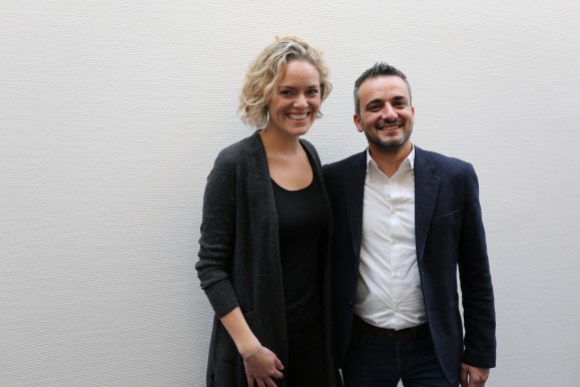
The way Sarmad Said Yaseen sees things, more Iraqis need access to Wikipedia. In his country, high mobile data costs limit internet use for an estimated 80% of the population, but the need for information and local knowledge is urgent. Surveys also show that even among Iraqi internet users, awareness of Wikipedia is lower than 20%. So Sarmad and the Iraqi Wikimedians began working to solve two problems at once: lowering the cost of Wikipedia access and increasing awareness of Wikipedia across the country.
In February 2017, the user group successfully launched a Wikipedia Zero program to bring the knowledge resource to 12 million Iraqis free of charge. Two months later, the user group collaborated with the Wikimedia Foundation and a media company in Erbil to create a 30-second video ad that explained Wikipedia and showed the platform in use by Iraqis. The ad was produced in both Kurdish and Arabic to reach Iraq’s two largest language groups. Promoted on Facebook with the generous support of Asiacell, the video has reached more than 5 million people- nearly 1 in 5 Iraqis.
Sarmad was scheduled to present on this work at Wikimania Montreal on but visa trouble prevented his travel. To get his insights into the event, Zack McCune and Jack Rabah interviewed Sarmad remotely at Wikimania, where he publicly shared his thoughts during a scheduled presentation on Awareness. This is a transcript of that conversation.
———
Sarmad, just 19% of internet users in Iraq say they have heard of Wikipedia. Why is awareness so low?
I think Iraq and some other countries in the Middle East still are suffering from low awareness. The main reasons may be the long wars that have killed many people here and other problems like ISIS. It is an unstable area for living, so it’s normal that you cannot focus on knowledge or sharing free knowledge across culture when you have problems in your main life requirements.
———
What are you and the Wikimedians of Iraq doing to raise awareness of Wikipedia and promote usage?
We are trying to remind our community about the great heritage that we had before, and we tell them that all of today’s existing problems are temporary. We have to start over again, and that is why we launched the Wikipedia Zero partnership in Iraq and why we have done many workshops across the cities of Iraq.
———
What activities has the Iraqi user group done this year?
We signed and launched Wikipedia Zero here in Iraq. It was the first partnership like this in the country, so we offer thanks to everyone who helped and supported us, especially Jack Rabah, Zack McCune, Adele Vrana, Katherine Maher, and the whole team. There are lot of people who helped actually, but I cannot remember all of them! We have also organized a Wiki Loves Monuments in Iraq, the second time this has ever happened in the country. There are over 250 images uploaded so far.
———
Tell us about the video ads you produced this year. What do they show about Iraq? What did you want to communicate about Wikipedia for Iraqis?
The advertisement shows the positive sides of Iraq, which is not usually seen in the media, news, or TV. We tried to use words that would have an effect on the public mentality. It’s meant for all audiences, not meant for just one part of the Iraqi people. Also we wanted to show the partnership between the Wikimedia Foundation and Asiacell, one of the biggest mobile operators in Iraq. Together, we all support the sharing of free knowledge in Iraq and the Middle East.
Video by the Wikimedia Foundation, CC BY-SA 3.0. You can also see this video on Commons, Vimeo or YouTube; in the Kurdish language on Commons, Vimeo, or YouTube; and translate a version without burned-in subtitles into your own language.
———
What’s next for Wikimedians in Iraq?
Right now in Iraq we are working to start a Wikipedia Education project and we consider this our top priority. Plus, we want to complete at least one workshop in each city in Iraq.
Zack McCune, Global Audience Communications Manager, Communications
Jack Rabah, Regional Manager, Strategic Partnerships – Middle East and Africa
Wikimedia Foundation

Can you help us translate this article?
In order for this article to reach as many people as possible we would like your help. Can you translate this article to get the message out?
Start translation